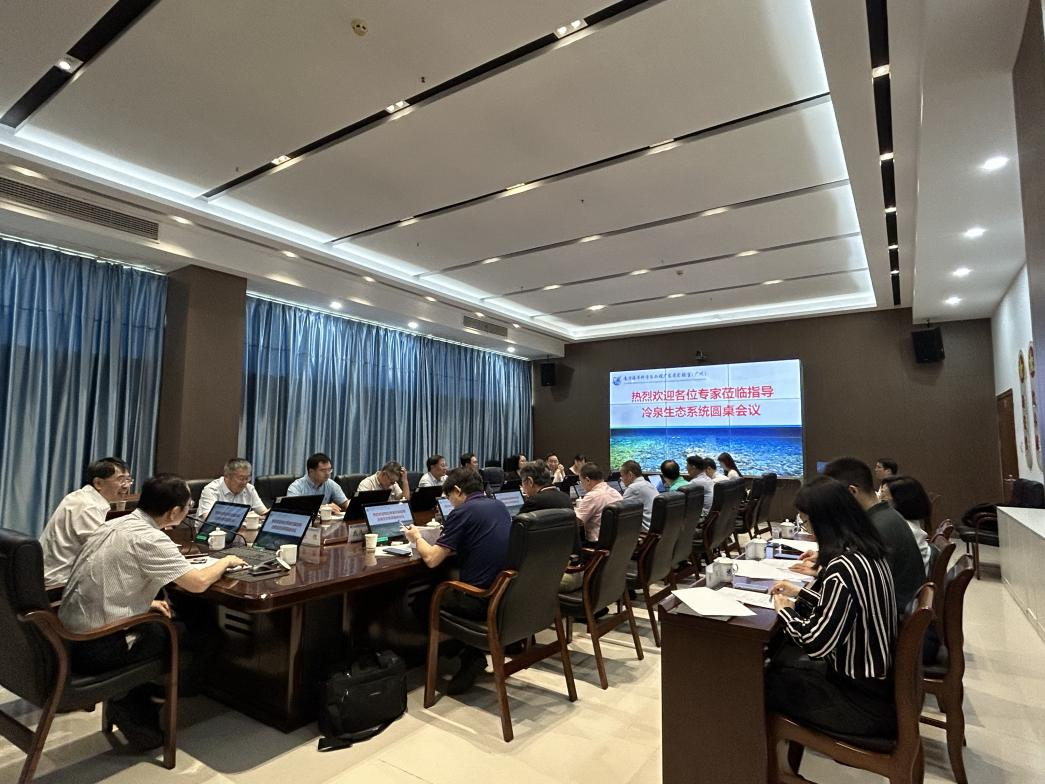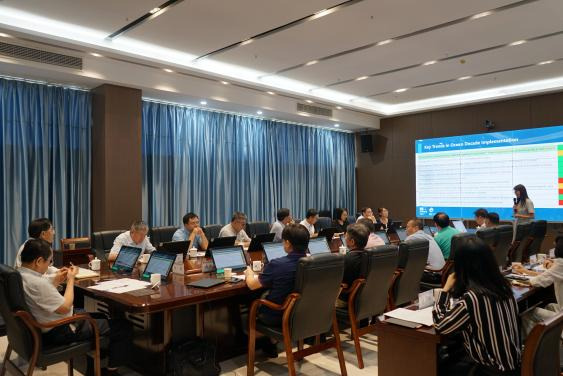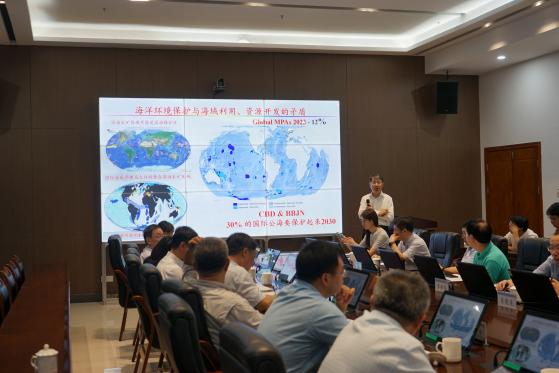On September 10th, the Southern Marine Science and Engineering Guangdong Laboratory (Guangzhou) (GML) successfully hosted a brainstorm meeting on Methane Seep Ecosystems. The meeting was attended by over 30 renowned marine experts, including Academician Zhang Si (Director of GML), Academician Dai Minhan (Xiamen University), Academician Bao Zhenmin (Ocean University of China), Zhang Zhanhai (Chairman of the China Ocean Mineral Resources Research and Development Association), Wang Wentao (Director of the China 21st Century Agenda Management Center), Wu Nengyou (Laoshan Laboratory), Li Tiegang (Institute of Marine Research, Ministry of Natural Resources), Li Chaolun (South China Sea Institute of Oceanology, Chinese Academy of Sciences), Li Xiaosen (Guangzhou Institute of Energy, Chinese Academy of Sciences), Chen Daoyi and Wang Yong (Tsinghua University Shenzhen Graduate School), Zhang Chuanlun (Southern University of Science and Technology), Feng Jingchun (Guangdong University of Technology), and other leading experts in marine science. The GML members Professor Qian Peiyuan, Yang Shengxiong, Huang Li, Yang Yang, along with relevant department and team members, also attended the meeting.

The meeting focused on academic exchanges and discussions surrounding deep-sea methane seep ecosystems. Key topics included the flux, transformation, and transmission of greenhouse gases in global methane seep systems; the adaptation and evolution of chemosynthetic life forms in methane seeps; and the occurrence and migration of pollutants in the deep sea. The goal was to propose recommendations for key research areas and priorities in the study of deep-sea methane seep ecosystems.

At the meeting, Dr. Guan Song, Associate Researcher at the United Nations Decade of Ocean Science for Sustainable Development (Ocean Decade) Ocean and Climate Collaboration Center, began by introducing the background of the Decade programme. Following her presentation, Professor Qian Peiyuan provided an overview of the development of the "Global Methane Seep Ecosystem" programme. The discussion then shifted to several key aspects of the programme, including its scientific objectives, emerging research trends and focal points in methane seep areas, the technological infrastructure required to support methane seep ecosystem research, and the international vision and significance. The experts unanimously agreed that the "Methane Seep Ecosystem" programme should focus on addressing the ten key challenges outlined by the UN Ocean Decade, leveraging large scientific facilities to facilitate collaborative research on methane seep ecosystems. While acknowledging both the challenges and opportunities involved in applying for the UN Ocean Decade’s programmes, they emphasized the importance of fostering international collaboration. The experts expressed strong support for the initiative.
Finally, Academician Zhang Si expressed his sincere gratitude to all the experts for their valuable comments and suggestions on methane seep ecosystem research and the application for the Decade programme. He hoped that in the future, all parties could work together, striving to advance methane seep ecosystem research through joint applications for the Decade programme, improving the domestic research system on methane seep ecosystems, and achieving the common goal of mutual benefit and win-win cooperation.


Attachment download:
